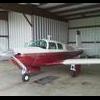Keep same oil filter for one more oil change?
-
Members Online
- dzeleski
- jjsk784
- Pinecone
- prillayo03
- Igor_U
- ElkoRandy20J
- Culver LFA
- Marc_B
- Skates97
- crustymuffin
- N201MKTurbo
- eman1200
- EricJ
- FlightSmith
- M20F
- DXB
- DCarlton
- NickG
- flyboy0681
- PT20J
- Aerodon
- irishpilot
- Wingover
- 00-Negative
- Danb
- Crawfish
- Q The Engineer
- MattD89
- TheAv8r
- Greg Ellis
- toto
- portmod7
- Schllc
- jetdriven
- qwerty1
- MooneyMax
- ta2too
- Patrick Horan
- DanM20C
- Rick Junkin
- Rmfriday
- AMG880


Recommended Posts
Join the conversation
You can post now and register later. If you have an account, sign in now to post with your account.